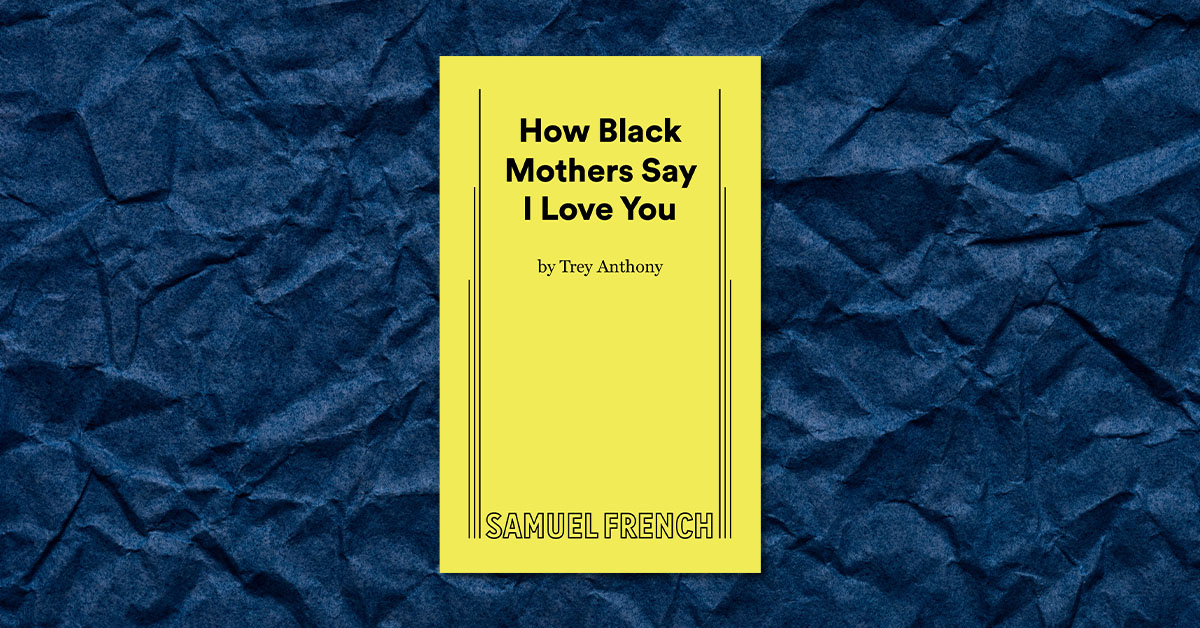
How Black Mothers Say I Love You (US/UK), playwright Trey Anthony’s heartfelt examination of Black womanhood and family, resonated with audiences upon its debut staging at the Factory Theatre Mainspace in Toronto in 2016. The moving play introduces Daphne, who is navigating identity, loss and her relationships with her daughters, Claudette, Valerie and Cloe. We recently connected with playwright Anthony to discuss her inspirations behind and within this powerful and touching play.
For people unfamiliar with How Black Mothers Say I Love You, how would you describe the story it tells?
How Black Mothers Say I Love You tells the story about family, migration, immigration, love and loss. It’s the story of how often the people who love us don’t really know how to really love us in the way we need… even though they are truly loving us the best way they know how.
What was the inspiration behind writing the play?
The inspiration was my grandmother and mother’s story and also my own. I wanted to tell the story of women who had no choice but to leave their children behind in search of the great American dream. Women who were mothering under less than idea circumstances. Women like myself and my own mother who had been separated from their mothers for several years and what this separation did to them. I got inspired to write the story when my grandmother was dying and I asked her the question about what she regretted in her life, and she replied, “I regret leaving my children behind… especially your mother, she never forgave me.”
Motherly abandonment is a main thread in interactions between Daphne and her daughters. Was it intentional to have this theme be a branch from which all the other issues evolved?
Yes it was intentional because I can attest that motherly abandonment is something that you never truly get over… it shows up in all your interactions and all your relationships, even as grown women there’s this little girl inside of you that fears that people will leave you…
Daphne’s oldest daughter, Claudette, indicates feelings of rejection throughout the story, yet they don’t seem to resolve for her. Would you characterize the play as finding a resolution in the end, or would you say it is more open-ended?
I intentionally didn’t want to wrap up the family dynamics in a nice little pink bow at the end, because family is always revolving in and out of conflict, and I wanted to show that even though they loved each other and wanted to work stuff out, things will remain unresolved and that is life… and something that I also had to accept about my own dynamic with my mother. I’m always learning how to love her and she’s doing the same. And some days it just doesn’t seem enough and some days it feels overwhelming, but we keep showing up.
Daphne’s youngest daughter, Cloe, has a presence that seems like an antidote to the way Daphne rationalizes her relationships with her other two daughters. Why?
I wanted Cloe to truly represent how often we get stuck in the past, that we are too often looking back that we miss what’s right in front of us. Daphne can only truly see Cloe, who’s dead and in the past, but can’t truly see her living daughters. And Claudette can only look back at the past and see that her mother left her but can’t see how her mother is trying her best to show up for her now.
How Black Mothers Say I Love You is an inspiring play for a director. What do you hope a director would be excited by in staging your play?
I would love a director to be excited about being able to mine this piece for the comedy moments in this as well as the dramatic. These women are very funny, very extreme but also going through deep emotional pain… also, I love to see how director’s view/stage Cloe. Even though she’s silent, she says so much in the play, so I’m always interested in how they give her “words” without speaking.
Why do you think How Black Mothers Say I Love You is a good fit for high school and college theatre programs?
It’s a very relatable play – I think most women/girls have conflict with their mothers, and most are always truly trying to separate from their mothers while realizing how attached they really are. Also, the play explores many dynamic themes such as sexuality, religion, love, immigration – all things that provide an interesting world view to students.
What do you hope audiences will take away from seeing a production of How Black Mothers Say I Love You?
I would hope that they will see that mothering isn’t easy. Loving someone isn’t easy. How we are all trying to do our best under hard circumstances. And I hope that they will see that family is “messy” and no one is perfect. And it’s better to forgive than to let hurt and pain keep you trapped in the past.
To purchase the script or learn more about licensing a production of How Black Mothers Say I Love You, visit Concord Theatricals in the US or UK.

Comedy Mysteries: Gasps, Laughs and Thrills

A Children’s Theatre Classic: An Interview with Snow White And The Seven Dwarfs Composer Michael Valenti

